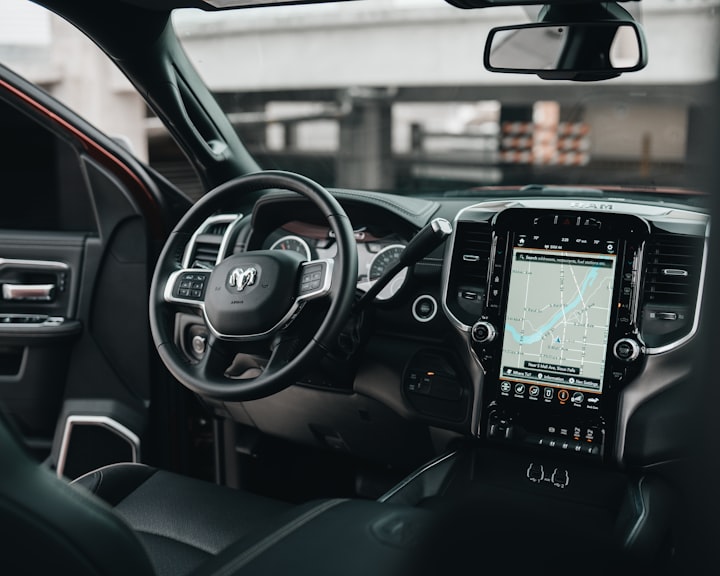The Rise of Self-Driving Cars
The Rise of Self-Driving Cars: A Technological Revolution on the Roads

In recent years, self-driving cars have emerged as a transformative force in the automotive industry, promising a future of enhanced safety, efficiency, and convenience.
With rapid advancements in artificial intelligence, sensor technology, and connectivity, autonomous vehicles are poised to revolutionize the way we travel and reshape our cities.
The rise of self-driving cars marks a significant milestone in human technological progress, bringing us closer to a new era of transportation.
One of the most compelling reasons behind the surge of self-driving cars is their potential to greatly improve road safety.
Human error accounts for the majority of accidents on our roads, whether due to fatigue, distractions, or impaired driving.
Autonomous vehicles, equipped with an array of sensors, cameras, and advanced algorithms, have the ability to detect and react to potential hazards more quickly and accurately than human drivers.
They can maintain safe distances, navigate complex traffic situations, and respond to unexpected events with split-second precision. With self-driving cars, the potential for human error is greatly reduced, leading to a significant reduction in accidents and fatalities.
Beyond safety, self-driving cars have the potential to revolutionize our transportation systems by increasing efficiency and reducing congestion. Through their ability to communicate with each other and the surrounding infrastructure, autonomous vehicles can optimize traffic flow, making travel smoother and more streamlined.
They can anticipate traffic patterns, adjust speeds, and coordinate merges and intersections, minimizing unnecessary stops and delays.
Additionally, shared autonomous vehicles have the potential to reduce the number of privately owned cars, leading to fewer vehicles on the road and less congestion in urban areas.
The rise of self-driving cars also promises a transformative impact on our daily lives. With autonomous vehicles, commuting time can be put to productive use, as passengers can work, relax, or engage in leisure activities during their journeys.
The elderly and individuals with disabilities will gain newfound independence, as they can travel safely and easily without relying on others for transportation.
Furthermore, self-driving cars have the potential to improve accessibility in underserved areas, providing mobility options for those who lack reliable transportation.
The advent of self-driving cars brings with it a range of challenges and considerations. One of the foremost concerns is the ethical dilemma surrounding decision-making in situations where an accident is imminent.
Programming autonomous vehicles to make split-second decisions that involve potential harm to passengers, other drivers, or pedestrians is a complex and ethically charged task.
Striking the right balance between preserving human life and minimizing harm is a crucial aspect that requires careful consideration and public discourse.
Another significant challenge is the regulatory framework necessary to ensure the safe and responsible deployment of self-driving cars.
Governments around the world are grappling with issues such as liability, insurance, cybersecurity, and data privacy.
Establishing comprehensive regulations and standards is vital to address these concerns and build public trust in autonomous vehicles.
Despite these challenges, the rise of self-driving cars seems inevitable. Major automotive companies, technology giants, and startups are investing heavily in autonomous vehicle research and development. Governments are also recognizing the potential benefits and actively supporting the development of self-driving technologies through policy initiatives and pilot projects.
As we witness the rise of self-driving cars, it is crucial to approach this technology with a mix of optimism, caution, and proactive planning.
Collaboration between industry, government, and society at large is essential to address technical, ethical, and regulatory challenges. It is also important to ensure equitable access to self-driving technologies, so that the benefits are shared by all segments of society.
The rise of self-driving cars represents a major leap forward in human innovation and has the potential to revolutionize transportation as we know it.
From enhancing road safety to optimizing traffic flow and transforming our daily lives, autonomous vehicles offer a promising future.
While there are challenges to overcome, the progress made thus far indicates that self-driving cars are no longer a distant dream but a tangible reality on the horizon.
Follow on Vocal Media ✍ : https://vocal.media/evelyn-taylor
About the Creator
Evelyn Taylor
A front-end enthusiast and dedicated development engineer, eager to expand knowledge on development techniques and collaborate with others to build exceptional software solutions.






Comments
There are no comments for this story
Be the first to respond and start the conversation.